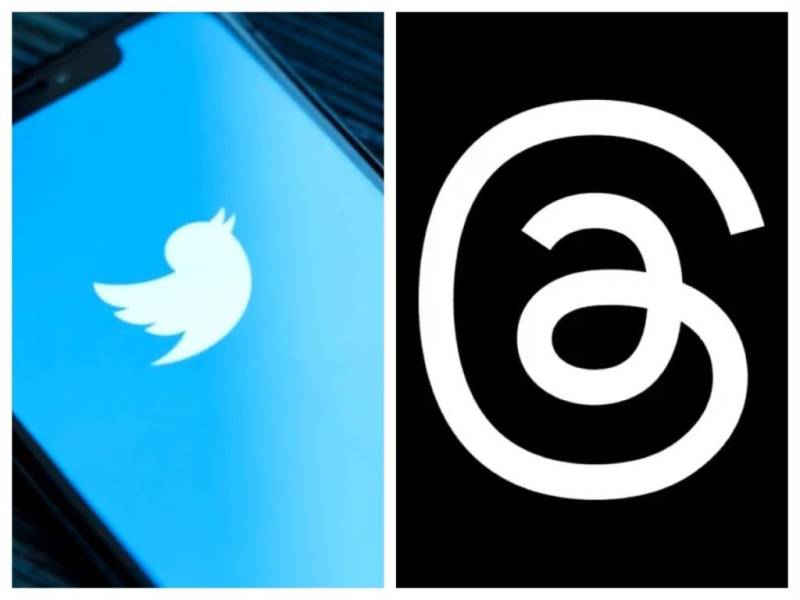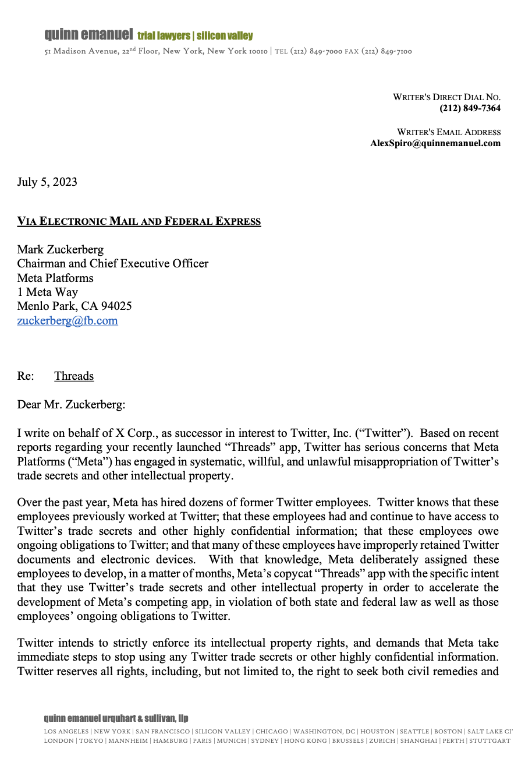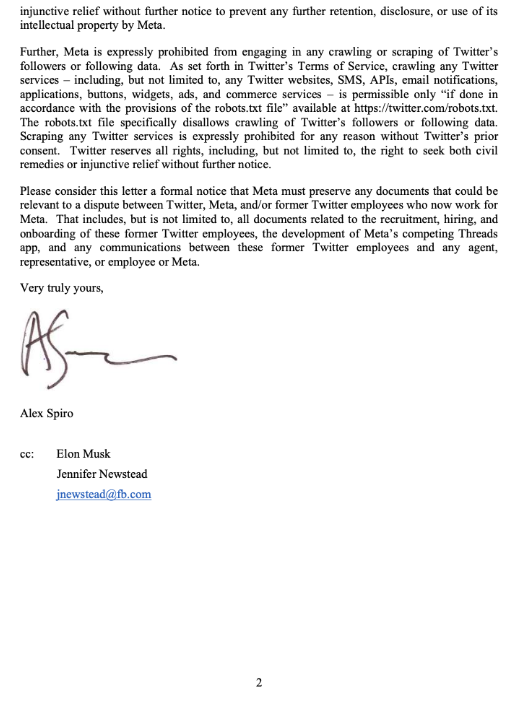
Meta's latest microblogging social media platform, Threads, has potentially landed into legal trouble just as it secured its first 50 million downloads, accused of stealing trade secrets by rival Twitter.
However, legal experts believe Twitter faces a challenging task in proving its claims if it decides to sue.
In a letter sent on Wednesday, Twitter alleged that Meta had utilized its trade secrets to develop Threads and demanded that Meta cease using the information.
https://twitter.com/elonmusk/status/1677042708756439041
Twitter claimed that Meta had hired numerous former Twitter employees (especially those who were fired by Twitter in a cost-cutting move after Elon Musk took over) who had retained devices and documents from the company and accused Meta of intentionally assigning them to work on developing Threads.


At present, it remains uncertain whether Twitter will pursue a lawsuit, as a spokesperson for the company did not respond immediately to requests for comment.
Meta spokesperson Andy Stone, however, stated in a Threads post on Thursday that no members of the engineering team on the site were former Twitter employees.
Experts in the field of the law suggest that cases involving accusations of stealing trade secrets from former employees who subsequently join competitors and develop similar products are challenging to substantiate.
To succeed, a company must demonstrate that the competitor obtained economically valuable information which the company had taken reasonable measures to keep confidential.
Polk Wagner, a law professor at the University of Pennsylvania, explained that determining what constitutes reasonable efforts can be complex.
Courts have made it clear that a company cannot merely claim something is a trade secret without providing substantial evidence. At the same time, it is not necessary to overly restrict access to information to the point where it becomes unusable.
When examining trade-secret cases, courts also consider whether the company had effectively communicated to its employees that specific information was classified as a trade secret. Broad agreements designating all company information as confidential have been deemed inadequate, as they fail to specify what is and is not confidential.
Trade-secret cases often result in weaker claims than initially anticipated by the companies involved. For instance, the high-profile legal battle between Alphabet's Waymo and Uber Technologies began with allegations of thousands of stolen documents but ended up focusing on only a small number of disputed documents. Uber settled the case shortly before the trial for $245 million worth of its own shares.
While trade-secret trials are rare, settlements are common due to the desire to limit public discussion of sensitive information. Settlements serve as an attractive option for all parties involved.
Twitter, and its parent company X Corp, faces significant hurdles in proving its allegations of trade secret theft by Meta for the development of Threads.
The complexities surrounding what constitutes reasonable efforts and effectively designating trade secrets add layers of difficulty to such cases.
Settlements often prevail over trials in trade-secret disputes, allowing companies to safeguard their secrets from unnecessary exposure.
However, legal experts believe Twitter faces a challenging task in proving its claims if it decides to sue.
In a letter sent on Wednesday, Twitter alleged that Meta had utilized its trade secrets to develop Threads and demanded that Meta cease using the information.
https://twitter.com/elonmusk/status/1677042708756439041
Twitter claimed that Meta had hired numerous former Twitter employees (especially those who were fired by Twitter in a cost-cutting move after Elon Musk took over) who had retained devices and documents from the company and accused Meta of intentionally assigning them to work on developing Threads.


At present, it remains uncertain whether Twitter will pursue a lawsuit, as a spokesperson for the company did not respond immediately to requests for comment.
Meta spokesperson Andy Stone, however, stated in a Threads post on Thursday that no members of the engineering team on the site were former Twitter employees.
Experts in the field of the law suggest that cases involving accusations of stealing trade secrets from former employees who subsequently join competitors and develop similar products are challenging to substantiate.
To succeed, a company must demonstrate that the competitor obtained economically valuable information which the company had taken reasonable measures to keep confidential.
Polk Wagner, a law professor at the University of Pennsylvania, explained that determining what constitutes reasonable efforts can be complex.
Courts have made it clear that a company cannot merely claim something is a trade secret without providing substantial evidence. At the same time, it is not necessary to overly restrict access to information to the point where it becomes unusable.
When examining trade-secret cases, courts also consider whether the company had effectively communicated to its employees that specific information was classified as a trade secret. Broad agreements designating all company information as confidential have been deemed inadequate, as they fail to specify what is and is not confidential.
Trade-secret cases often result in weaker claims than initially anticipated by the companies involved. For instance, the high-profile legal battle between Alphabet's Waymo and Uber Technologies began with allegations of thousands of stolen documents but ended up focusing on only a small number of disputed documents. Uber settled the case shortly before the trial for $245 million worth of its own shares.
While trade-secret trials are rare, settlements are common due to the desire to limit public discussion of sensitive information. Settlements serve as an attractive option for all parties involved.
Twitter, and its parent company X Corp, faces significant hurdles in proving its allegations of trade secret theft by Meta for the development of Threads.
The complexities surrounding what constitutes reasonable efforts and effectively designating trade secrets add layers of difficulty to such cases.
Settlements often prevail over trials in trade-secret disputes, allowing companies to safeguard their secrets from unnecessary exposure.

